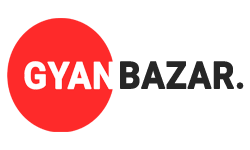Programming languages are the building blocks of modern technology. They serve as the means through which humans communicate with computers, enabling the creation of software, applications, and systems that power our digital world. With a multitude of programming languages available, each with its unique set of features and applications, choosing the right language for a particular project can be a daunting task. In this article, we will delve into the realm of programming languages, highlighting their distinctive features, use cases, and making comparisons to aid in selecting the most suitable one for your next venture.
Programming languages serve as the bridge between human thought and computer execution. Each language comes with its own syntax, rules, and capabilities, making it crucial to choose the right one based on the task at hand. In this article, we will explore some of the most popular programming languages, delve into their features, examine their use cases, and provide insights for selecting the most appropriate language for specific projects.
Popular Programming Languages
Understanding the Landscape
In the vast realm of programming languages, several have risen to prominence due to their versatility and widespread use. Let’s take a look at some of the most popular ones:
Python
Python, known for its readability and simplicity, has become a go-to language for beginners and experienced developers alike. Its elegant syntax allows programmers to express concepts in fewer lines of code, fostering rapid development.
Java
Java’s “write once, run anywhere” philosophy has made it a staple in enterprise-level applications. Its robustness, platform independence, and extensive libraries have cemented its position in the software development landscape.
JavaScript
JavaScript, often used in web development, enables dynamic and interactive user experiences. It powers everything from simple webpage animations to complex single-page applications.
C++
C++ strikes a balance between high-level and low-level programming, making it ideal for performance-critical applications like game development and system programming.
Features of Programming Languages
Syntax and Structure
Each programming language has its own set of rules for writing code. Python’s clean and intuitive syntax contributes to its popularity among beginners, while languages like C require more attention to detail.
Data Types and Variables
Different languages support different data types, such as integers, strings, and booleans. The way variables are declared and manipulated also varies, affecting both code readability and performance.
Control Flow
Conditional statements and loops dictate the flow of a program. Python’s indentation-based approach sets it apart, while languages like Java use explicit syntax for control flow.
Memory Management
Languages like C and C++ provide direct control over memory management, allowing for efficient memory usage but requiring developers to be vigilant against memory leaks. Managed languages like Python and Java handle memory management automatically.
Libraries and Frameworks
Libraries and frameworks offer pre-built code and functionalities, speeding up development. Python’s extensive libraries for data analysis and machine learning, along with JavaScript’s rich ecosystem for web development, are prime examples.
Use Cases of Different Languages
Web Development
JavaScript, HTML, and CSS are the pillars of web development. While JavaScript enables dynamic content, HTML structures the content, and CSS styles it for an appealing user experience.
Data Science and Analysis
Python’s versatility shines in data science. Its libraries like NumPy, Pandas, and Matplotlib facilitate data manipulation, analysis, and visualization, making it a top choice for data scientists.
Mobile App Development
Java and Swift are popular choices for mobile app development. Java is used for Android apps, while Swift is the language of choice for iOS development, both providing tools for creating sleek and efficient apps.
System Programming
Languages like C and C++ are used for system-level programming due to their low-level control over hardware. They are essential for developing operating systems, drivers, and other critical software.
Game Development
C++ remains a dominant force in game development due to its high performance and direct hardware access. Engines like Unity and Unreal Engine leverage C++ to create immersive gaming experiences.
Comparing Programming Languages
Performance
C and C++ offer unparalleled performance, making them suitable for resource-intensive applications. Managed languages like Python sacrifice some performance for ease of use.
Learning Curve
Python’s simplicity makes it an excellent starting point for beginners, while languages like C++ require a steeper learning curve due to their complexity.
Community and Support
Languages with large communities, like Python and JavaScript, offer extensive support, resources, and libraries. This community-driven ecosystem accelerates problem-solving and innovation.
Ecosystem and Tools
Languages with robust ecosystems, such as Java and Python, provide a wide range of tools for development, testing, and deployment, streamlining the entire development process.
Selecting the Right Language
Choosing a programming language depends on factors such as project requirements, team expertise, and long-term goals. Consider the application’s scope, the available libraries, and the potential for future scalability.
Conclusion
In the dynamic landscape of programming languages, there’s no one-size-fits-all solution. Each language has its strengths and weaknesses, making them suitable for specific tasks. By understanding their features, use cases, and comparing their attributes, developers can make informed decisions that lead to successful projects.


0 thoughts on “Highlighting the World of Programming Languages: Features, Use Cases, and Comparisons.”